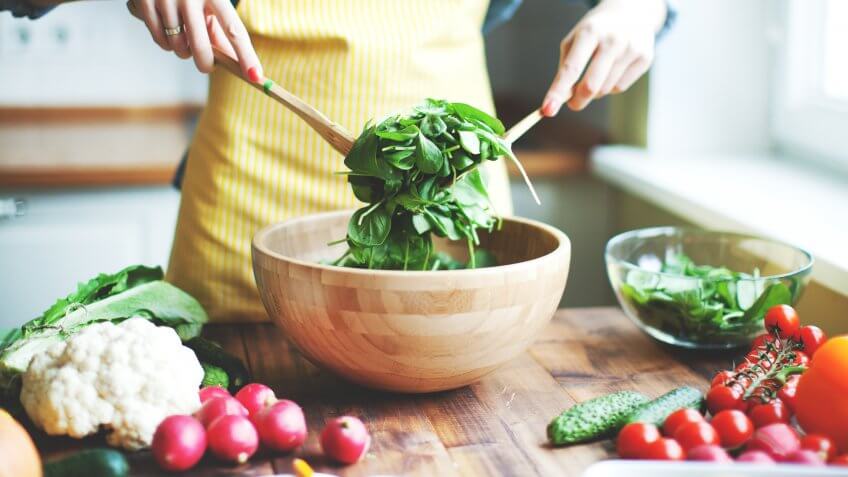Part of the Food Policy Community Spotlight Series
Name: Slow Food NYC
What they do: Slow Food NYC is the New York City chapter of Slow Food, a nonprofit, member-supported organization founded in 1989 to counteract the culture of fast food. Slow Food stands against the disappearance of local food traditions and people’s lack of interest in where their food comes from, how it tastes and how our food choices affect the rest of the world. Slow Food NYC believes that every eater has the right to enjoy sustainably and humanely produced, delicious food that is good for human health and well being, the planet and those who labor to bring food to our tables.
How they do it: Slow Food NYC works towards creating a food system that is good, clean and fair for all through the following programs: (1) Slow U which provides ways to learn about good food through fun, convivial activities. At Slow U events, food producers, activists, writers, chefs and purveyors talk about what they are doing and what we can do to improve the way the world feeds itself. One of their annual events is called The Food Almanac, which focuses on food and farm policy issues we’ll be facing in the coming year. For a rundown on the 2017 Almanac panelists and recommended resources, click here. (2) Snail of Approval, a designation given to restaurants and bars as well as food and beverage artisans that contribute to the quality (freshness, wholesomeness of ingredients, beneficial to health), authenticity (natural and free of additives) and sustainability of the food supply in the City of New York. (3) Producer Matrix, which expands the Snail of Approval program to include the entire supply chain (farmers, fisherman and processors). To date, Slow Food NYC has vetted nearly 130 farms, processors, and distributors that represent better sources of good, clean, fair food. (4) Urban Harvest, which provides structured learning experiences that expose children to good food and inspires them to share what they learn with their families, friends and communities. There are two unique, complementary program components:
- Urban Harvest in Schools, operating at schools located in the South Bronx, East Harlem, Lower East Side and Central Brooklyn during the academic year (September through June), is tailored to meet schools’ good food education program needs including professional teacher development and consulting, building and maintaining school gardens, providing cooking and good food education classes, operating student-run “farm stands,” holding field trips, and staging farm-to-cafeteria days.
- Urban Harvest Farm at Ujima, a tuition-free, educational urban farm operating in East New York, Brooklyn during the summer months (July and August), where “student farmers,” aged 7 to 14, drawn from local community organizations, learn about, plant, tend, harvest, prepare, share, and enjoy good, clean food, in a structured educational program. Ujima was founded as a community garden in 1995 and has been operated by Slow Food NYC since 2010. It takes its name from the Coastal Swahili word for “communal work.”
Mission: Slow Food NYC seeks to move our culture away from the destructive effects of an industrial food system and to create a system that is based on the principles of high quality and taste, environmental sustainability, and social justice—in essence, a food system that is good, clean and fair.
Latest project/campaign: Urban Harvest at Ujima in 2018
Major Funding: Slow Food USA (parent organization) and Private Donors
Profit/nonprofit: Nonprofit
Annual Budget: $60,000
Interesting fact about how it is working to positively affect the food system: More than 1,500 children benefit from Slow Food NYC’s Urban Harvest Program.
Before Urban Harvest at Ujima in 2017:
- about 40 percent of student farmers indicated they had not gardened. While at Ujima, all helped plant, tend, and harvest.
- about 20 percent of student farmers indicated they did not help shop for or prepare food at home. While at Ujima, all helped harvest Ujima produce and prepare communal lunches.
- about 50 percent of student farmers indicated that fruits and vegetables come from a factory or store. After Ujima, about 80 percent indicated that the food at Ujima did not come from very far and all indicated that food miles are important.
- about 50 percent of student farmers indicated they had three or fewer fruits and vegetables the day before starting at Ujima. On their last day at Ujima, about 80 percent indicated they had four to seven fruits and vegetables on the day prior and, while at Ujima, all indicated that they had tried and liked a new fruit or vegetable.
FACT SHEET:
Location:
1000 Dean St
Brooklyn NY 11238
Core Programs:
–Slow U – Thinking, talking, and tasting our way through the good, clean, and fair food revolution, and acting to create and sustain a food chain that is good, clean, and fair for all.
–Snail of Approval – Recognizing restaurants, bars, food and beverage artisans, and markets that contribute to the quality, authenticity, sustainability, and equity of the New York City food supply.
–Urban Harvest – Teaching more than 1,500 New York City children a year about the effects good food have on health and well-being, the health of communities and the health of the planet.
–Producer Matrix – Linking local farmers, fishers, and other producers to retailers, chefs, and buyers to create a supply chain that supports the values of good, clean, and fair food for all.
Number of staff: 7
Number of volunteers: 20
Areas served: Bronx, Brooklyn, Manhattan, Queens
Year Started: 2000
CEO: Board Co-chairs: Jennifer Goggin & Martina Kenworthy
Contact Information: info@slowfoodnyc.org


